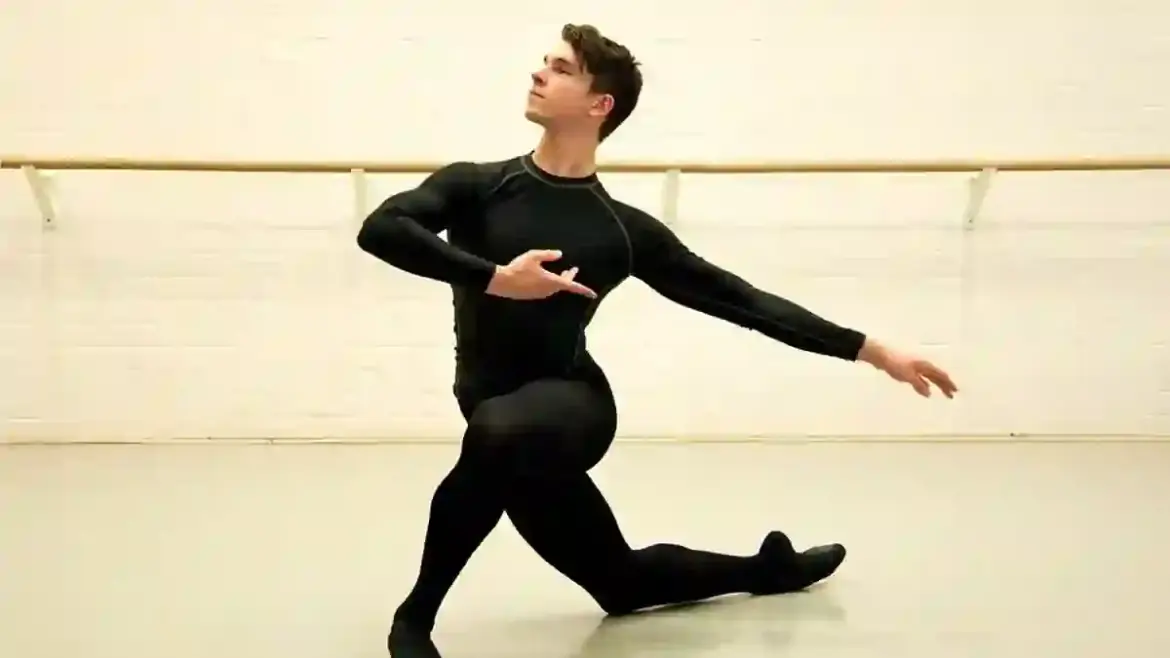In a case that has captured the attention of both the performing arts and legal communities, Alexander Loxton, a former West End ballet dancer, is suing the Metropolitan Police for nearly £600,000.
He alleges that a stop and search in 2016 left him with a severe ankle injury, effectively ending what he describes as his “premier league” career.
A Star on Stage and Screen
Before the incident, Loxton’s career was nothing short of impressive.
He performed as ‘older Billy’ in the West End hit Billy Elliot, danced with the Royal Ballet, and even performed at Buckingham Palace during the late Queen’s 80th birthday celebrations.
His trajectory suggested a career destined for the highest levels of classical ballet and major stage productions.
The Incident at Kennington Police Station
Loxton claims the injury occurred during a stop and search at London’s Kennington police station in September 2016.
He had visited the station to retrieve a stolen motorbike helmet visor when officers confronted him.
According to Loxton, what began as a routine inquiry quickly escalated into a violent encounter.
Lawyers say officers allegedly handcuffed him, slammed him against a wall, and one officer repeatedly stamped on his ankle.
Loxton suffered ligament damage, alongside soft tissue injuries to his thumb, wrist, and fingers.
The ordeal, he claims, also caused emotional distress, anxiety, and humiliation.
Police Deny Wrongdoing
The Metropolitan Police, however, dispute Loxton’s account.
Commissioner Sir Mark Rowley denies liability, stating that any force used was “reasonable and proportionate” because Loxton allegedly refused to cooperate.
Defence barrister Robert Talalay described the dancer’s behaviour as “rude and aggressive,” claiming Loxton effectively escalated the situation himself.
Talalay further argued that officers placed a foot on Loxton’s ankle only to keep him in place while conducting the search, insisting that Loxton’s own actions made the force necessary.
Ballet Dreams Cut Short
Loxton’s legal team emphasizes the impact of the injury on his career.
Barrister Fiona Murphy described him as having the skill, tenacity, and potential to succeed at elite ballet companies or major West End productions.
Yet, the ankle damage allegedly left him unable to perform the demanding jumps and directional changes required at such a high level, despite extensive rehabilitation.
Dispute Over Career Decline
The defence counters that Loxton’s career had already been on a downward trajectory since 2014, citing prior injuries, a refusal to accept lower-paying roles, and limited opportunities as contributing factors.
Talalay asserted that Loxton “became the author of his own fate” through his resistance during the stop and search.
Case Continues
The case is ongoing in Central London County Court, with Loxton seeking compensation for the alleged permanent damage and the consequent derailment of his ballet career.
Both sides continue to present conflicting accounts, and the final outcome could have significant implications for policing practices and performers’ rights.
